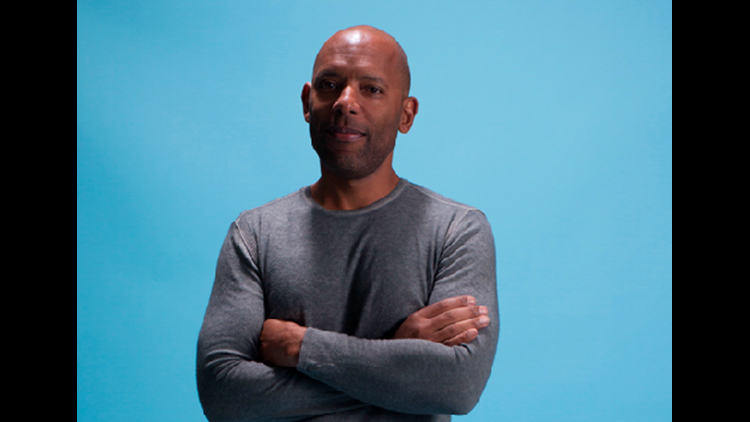SAN FRANCISCO — Slack has hired Leslie Miley, the former Twitter engineer who sparked public debate for challenging the social media company's commitment to advancing diversity.
Miley joined Slack as a director of engineering for its growth team. The hire underscores the high-profile tech start-up's reputation for driving the conversation about Silicon Valley's white male-dominated corporate culture and for trying to remake its own.
![635963458503824528-Miley.png [image : 83103144]](http://www.gannett-cdn.com/media/2016/04/15/USATODAY/USATODAY/635963458503824528-Miley.png)
"The culture Slack is building here, the people they have and the things that they say are important to them really resonate with me as a human being, not just as an African American," Miley told USA TODAY. "Empathy and engineering, when was the last time you heard those two words spoken in the same sentence?"
Slack is one of the youngest tech start-ups to be vocal about its efforts to disrupt the typical tech start-up hiring practices by placing a priority on building a more diverse workforce. Slack's chief executive, Stewart Butterfield, has pushed in public forums for the tech industry at large to be more inclusive.
In February when the company won a "Crunchie" award for "fastest rising start-up," a team of engineers, all women of color, accepted it. Slack, which offers a communications tool for businesses and other groups, recently raised $200 million at a valuation of $3.8 billion.
A tiny fraction of the work force at major technology companies in Silicon Valley is African American or Latino and, despite a recent outpouring of money, rhetoric and resources, progress has been slow in boosting the ranks of underrepresented minorities.
At Slack, the numbers have crept higher as the companies aims to change the demographics of its workforce.
Nearly 9% of engineers, 7% of employees in technical roles and 4.4% of employees in the U.S. identify as black. But Slack has no underrepresented minorities in its upper management or on its board of directors, according to the company's most recent diversity report released in February.
![Twitter diversity pick stirs controversy [oembed : 83103050] [oembed : 83103050] [oembed : 83103050] [oembed : 83103050] [oembed : 83103050] [oembed : 83103050] [oembed : 83103050] [oembed : 83103050] [oembed : 83103050] [oembed : 83103050] [oembed : 83103050] [oembed : 83103050] [oembed : 83103050] [oembed : 83103050] [oembed : 83103050] [oembed : 83103050] [oembed : 83103050] [oembed : 83103050]](/Portals/_default/Skins/PrestoLegacy/CommonCss/images/smartembed.png)
![Twitter engineering chief pledges 'faster progress' on diversity [oembed : 83103066] [oembed : 83103066] [oembed : 83103066] [oembed : 83103066] [oembed : 83103066] [oembed : 83103066] [oembed : 83103066] [oembed : 83103066] [oembed : 83103066] [oembed : 83103066] [oembed : 83103066] [oembed : 83103066] [oembed : 83103066] [oembed : 83103066] [oembed : 83103066] [oembed : 83103066] [oembed : 83103066] [oembed : 83103066]](/Portals/_default/Skins/PrestoLegacy/CommonCss/images/smartembed.png)
"Slack says it wants to build the best engineering organization in the industry, which is what everyone says. What's different is that Slack says: Let's just find the best talent and make sure diversity and inclusion are a big part of that," Miley said.
That, he says, includes recruiting engineers who may be self taught or attended a tech boot camp instead of a computer science program at a prestigious university.
Growing up in East San Jose, Miley hung out at computer stores "to not get beat up." A college drop-out, his affinity for technology deepened as he chatted up engineers while working the graveyard shift as an Apple security guard.
Working in Silicon Valley since 1998, he has had stints at some of the top companies including Apple and Google. His view: Silicon Valley has yet to come to terms with its own exclusivity and is even "inherently hostile to diversity."
Miley was the sole African-American engineer in a leadership position at Twitter. His criticism of the company's track record on diversity struck a national nerve, drawing scrutiny of the social media service which has a diverse audience but not a diverse staff. Before leaving Twitter, Miley pitched the company on giving him the role of "diversity engineering manager" to tackle the company's challenges, but his offer was rejected. In January, he joined recruiting software startup Entelo as its director of engineering but left a month ago, he said.
"Privilege and bias are so ingrained, people don't even see it," he said.
Yet, he has hope as he watches progress underway in more diverse tech hubs from Cincinnati, Ohio to Miami, Florida.
"There are tech ecosystems being developed in other areas that don't seem to have the ingrained bias and exclusivity that Silicon Valley has," Miley said. "Perhaps they can be a model. There are places out there doing this that don't look like San Francisco."
Follow USA TODAY senior technology writer Jessica Guynn @jguynn



![635963460166245776-Butterfield.JPG [image : 83103208]](http://www.gannett-cdn.com/media/2016/04/15/USATODAY/USATODAY/635963460166245776-Butterfield.JPG)
